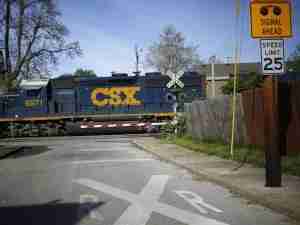Californian Circuit Court finds in favor of State law on meals and rest breaks for truckers
posted by AJOT | Jul 11 2014 at 01:02 PM | Intermodal
Reviving two class actions against employers that allegedly forced workers to skip meals, the 9th Circuit said Wednesday that a federal deregulation act does not override California's meal and rest break laws.
California based Courthouse News Service reported that the rulings come in the wake of, and may repair, a split in California's federal courts over whether the Federal Aviation Administration Authorization Act of 1994 (FAAAA) pre-empts state laws requiring employers to pay workers for a 30-minute meal break for every five hours worked, or a 10-minute rest break for every four hours worked.
Delivery drivers Mickey Lee Dilts, Ray Rios and Donny Dushaj claimed in a state court action that they were often discouraged from taking breaks while working for Penske Logistics and Penske Truck Leasing Co., even though the company folded a 30-minute meal break into their shifts.
In San Diego, the plaintiffs secured class certification but lost on summary judgment. U.S. District Judge Cathy Ann Bencivengo agreed with Penske that the FAAAA pre-empted California's requirements.
Since that ruling came down, eight other California federal courts have found that the FAAAA pre-empts California's meal and rest break laws, while four others have held that
Dilts, Rios and Dushaj's appeal is the first to hit the 9th Circuit, which reversed in their favor Wednesday, sending the case back to San Diego for consideration of the merits of the workers' claims.
In a separate, unpublished ruling, the panel also revived Campbell v. Vitran Express Inc., a similar case that also foundered on federal pre-emption grounds.
While Congress adopted the FAAAA in the 1990s to stop states from "undermining federal deregulation of interstate trucking" though lawmaking, the act pre-empts only those state laws that are "related to" pricing, or that require or ban certain routes or services, the three-judge panel said.
California's meal and break laws do none of those things.
"They are normal background rules for almost all employers doing business in the state of California," Judge Susan Graber wrote for the court. "And while motor carriers may have to take into account the meal and rest break requirements when allocating resources and scheduling routes - just as they must take into account state wage laws, or speed limits and weight restrictions - the laws do not 'bind' motor carriers to specific prices, routes, or services."
The panel said it found an amicus brief against preemption by the Department of Transportation "particularly persuasive."
In a concurrence, U.S. District Judge Jack Zouhary, sitting on the panel by designation from the Northern District of Ohio, argued that Penske had "failed to demonstrate the impact of the California law that would support a finding of preemption."







